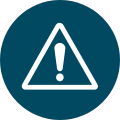
Our vision:
A safe and healthy Kitsap County for all.
Blood Lead Level Case Management
To report a notifiable condition or contact Kitsap Public Health District's Communicable Disease team, call 360-728-2235 or fax a completed fax form to our confidential fax line: 360-813-1168.
Disease Reporting Forms
Notifiable Conditions List
Anthrax (Bacillus anthracis, confirmed Bacillus cereus)
Report to:
Kitsap Public Health
Immediately (upon clinical suspicion)
Botulism (foodborne, infant, wound)
Report to:
Kitsap Public Health
Immediately (upon clinical suspicion)
Burkholderia Infection (Melioidosis or Glanders)
Report to:
Kitsap Public Health
Immediately (upon clinical suspicion)
Carbapenem-resistant Enterobacteriaceae (CRE)
and Organisms
Report to:
Kitsap Public Health
Within three business days
Disease Outbreaks (e.g., norovirus)
Report to:
Kitsap Public Health
Immediately (upon clinical suspicion)
Haemophilus influenzae (Invasive Disease children under five years of age)
Report to:
Kitsap Public Health
Immediately (upon clinical suspicion)
Human Immunodeficiency Virus (HIV) Infection
Report to:
Kitsap Public Health
Within three business days
Meliodosis (Burkholderia pseudomallei)
Report to:
Kitsap Public Health
Immediately (upon clinical suspicion)
Paralytic Shellfish Poisoning (PSP)
Report to:
Kitsap Public Health
Immediately (upon clinical suspicion)
Shiga Toxin-Producing E. coli (STEC)
Report to:
Kitsap Public Health
Immediately (upon clinical suspicion)
No result found. Please try a different search term or filter.
Healthcare Advisories
No result found. Please try a different search term or filter.
Focus Diseases & Topics
This list provides resources for diseases and health issues that Kitsap Public Health programs are working to address in our county. To learn more about our prevention work, view the topic pages and advisories linked below or call us at 360-728-2235.
Resources:
Kitsap Public Health can provide case management for patients with elevated blood lead levels. To learn more, visit our Blood Lead Level Case Management page or call 360-728-2229.
More resources:
Resources:
Resources:
Measles webpage | DOH
Measles Cases and Outbreaks | CDC (updated weekly on Wednesdays)
Resources:
Nurse-Family Partnership provides a free nurse to visit clients during pregnancy and the first two years of their child's life. To learn more, visit our NFP page for healthcare providers or call 360-728-2229.
Resources:
Resources:
Telebuprenorphine Hotline | Department of Emergency Medicine
Overdose Prevention Hub | CDC
Prescription Monitoring Program | WA Dept. of Health
Pain & Opioid Provider Hotline | University of Washington
Resources:
Communicable Disease Data Dasbhoards

Data dashboards are not available on mobile devices. Please switch to a computer to view these dashboards.
Communicable disease data from Kitsap, Clallam, and Jefferson counties, compiled from CDC, WA DOH, and local sources.
More Health Data & Reports
Note: This page provides information for healthcare professionals. Community members can visit our main Lead Resources page for general information.
Connect With Services
Have a patient with an elevated blood lead level or want to find out more?
Call our Pregnancy and Parenting Support Line at 360-728-2229
Our Blood Lead Level case management team will follow up to provide:
Guidance for your clinic about confirmatory and follow up testing.
Education to the family about how to prevent lead exposure.
Home testing to identify sources of lead exposure.
General Information
Childhood lead exposure is a serious but preventable environmental public health issue. Lead is a toxin that can have long-term impacts on physical health and brain development. Children are particularly vulnerable. Even at lower levels, studies have shown that lead can cause attention and behavior challenges and lower academic achievement (Zhang et al., 2013; Shadbegian et al., 2020). Because there may not be symptoms at lower levels, a blood lead test is the only way to know if a child has been exposed.
Lead testing at 12 and 24 months is required for children enrolled in Medicaid (Apple Health) and screening is recommended for all children.
It’s especially important to consider testing your pediatric patient for lead if:
The child lives in or frequently visits a home built before 1978
Frequently puts metal or painted toys or jewelry in their mouth
Lives with someone who is exposed to lead at work
For specific questions, the clinical algorithm for blood lead testing can be found here.
Evidence Base & Local Data
In 2023, WA state tested 7% of children under six for lead. 2% of children tested had lead levels at or above 5 micrograms/dL.
Comparatively, in 2023 Kitsap County only tested 3.6% of children under six. Our case positivity rate was comparable with the state at 1.8%. This low rate of testing caused KPHD to release a Healthcare Advisory calling for increased lead screening in November 2024.











.png)
